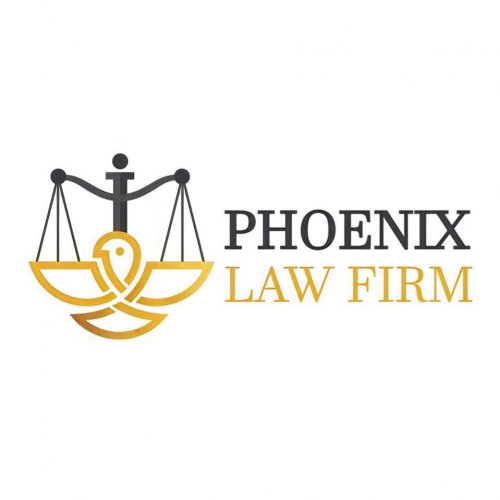Best Foreclosure Lawyers in Beirut
Share your needs with us, get contacted by law firms.
Free. Takes 2 min.
Free Guide to Hiring a Real Estate Lawyer
List of the best lawyers in Beirut, Lebanon
About Foreclosure Law in Beirut, Lebanon
Foreclosure is the legal process by which a lender seizes and sells a property when a borrower fails to make mortgage payments. In Beirut, Lebanon, foreclosure laws are governed by the Lebanese Civil Code. These laws outline the rights and responsibilities of both lenders and borrowers in foreclosure cases.
Why You May Need a Lawyer
While navigating the foreclosure process, there are several situations where seeking legal advice becomes crucial:
- If you are facing the possibility of foreclosure and need assistance in understanding your rights and options.
- If you want to challenge the foreclosure proceedings initiated by your lender, ensuring that your rights are protected.
- If you need help negotiating with your lender to find alternative solutions, such as loan modification or debt restructuring.
- If you believe your lender has engaged in fraudulent practices throughout the foreclosure process.
- If you need someone to guide you through the complex legal procedures and represent your interests in court, if necessary.
Local Laws Overview
Key aspects of local laws relevant to foreclosure in Beirut, Lebanon include:
- Foreclosure is mainly governed by Articles 166 to 191 of the Lebanese Civil Code.
- In Lebanon, foreclosure can either be conducted through a public auction or a private sale, depending on the circumstances and the agreement between the lender and the borrower.
- The lender must follow specific legal procedures, provide proper notice to the borrower, and obtain court approval before initiating the foreclosure process.
- Borrowers have the right to challenge the foreclosure in court if they believe their rights have been violated or if they can prove valid defenses against the foreclosure.
- Both parties have the opportunity to present evidence and arguments during the foreclosure proceedings.
Frequently Asked Questions
1. Can I stop foreclosure once it has started?
Yes, there are options available to stop foreclosure, such as negotiating with your lender, seeking loan modification, or filing for bankruptcy. Consulting with a lawyer can help you explore the possibilities based on your specific situation.
2. Is foreclosure the only option for lenders to recover their money?
No, foreclosure is not the only option. Lenders may choose alternative methods to recover their money, like renegotiating the terms of the loan or reaching a settlement agreement with the borrower.
3. Can I be held responsible for the remaining debt after foreclosure?
In some cases, if the proceeds from the sale of the property do not cover the full amount owed, the lender may pursue a deficiency judgment against the borrower, holding them responsible for the remaining debt. However, legal advice is crucial as each situation varies.
4. Can I challenge the foreclosure in court?
Yes, as a borrower, you have the right to challenge the foreclosure in court if you believe your rights have been violated or if you can present valid defenses. Seeking legal representation is advisable to successfully navigate the legal processes involved.
5. How long does the foreclosure process take in Beirut, Lebanon?
The duration of the foreclosure process can vary depending on various factors, including the complexity of the case, court availability, and the lender's actions. Generally, foreclosure proceedings in Lebanon can take several months to reach a resolution.
Additional Resources
If you need further information or assistance regarding foreclosure in Beirut, Lebanon, consider reaching out to the following resources:
- Ministry of Justice: The ministry provides information on legal matters and can guide you to relevant governmental bodies, if needed.
- Lebanese Bar Association: Contact the association to get referrals for experienced lawyers specializing in foreclosure cases.
- Legal Aid NGOs: Organizations such as Najda Now provide free legal aid to those who cannot afford private legal representation.
Next Steps
If you require legal assistance in foreclosure matters in Beirut, Lebanon, take the following steps:
- Gather all relevant documents, including loan agreements, correspondence with the lender, and foreclosure notices.
- Research and compile a list of experienced lawyers who specialize in foreclosure cases.
- Conduct initial consultations with potential lawyers to discuss your situation and evaluate their expertise and compatibility.
- Select a lawyer who fits your requirements and makes you feel confident in their abilities.
- Work closely with your chosen lawyer to navigate the foreclosure process, protect your rights, and explore potential solutions.
Lawzana helps you find the best lawyers and law firms in Beirut through a curated and pre-screened list of qualified legal professionals. Our platform offers rankings and detailed profiles of attorneys and law firms, allowing you to compare based on practice areas, including Foreclosure, experience, and client feedback.
Each profile includes a description of the firm's areas of practice, client reviews, team members and partners, year of establishment, spoken languages, office locations, contact information, social media presence, and any published articles or resources. Most firms on our platform speak English and are experienced in both local and international legal matters.
Get a quote from top-rated law firms in Beirut, Lebanon — quickly, securely, and without unnecessary hassle.
Disclaimer:
The information provided on this page is for general informational purposes only and does not constitute legal advice. While we strive to ensure the accuracy and relevance of the content, legal information may change over time, and interpretations of the law can vary. You should always consult with a qualified legal professional for advice specific to your situation.
We disclaim all liability for actions taken or not taken based on the content of this page. If you believe any information is incorrect or outdated, please contact us, and we will review and update it where appropriate.








